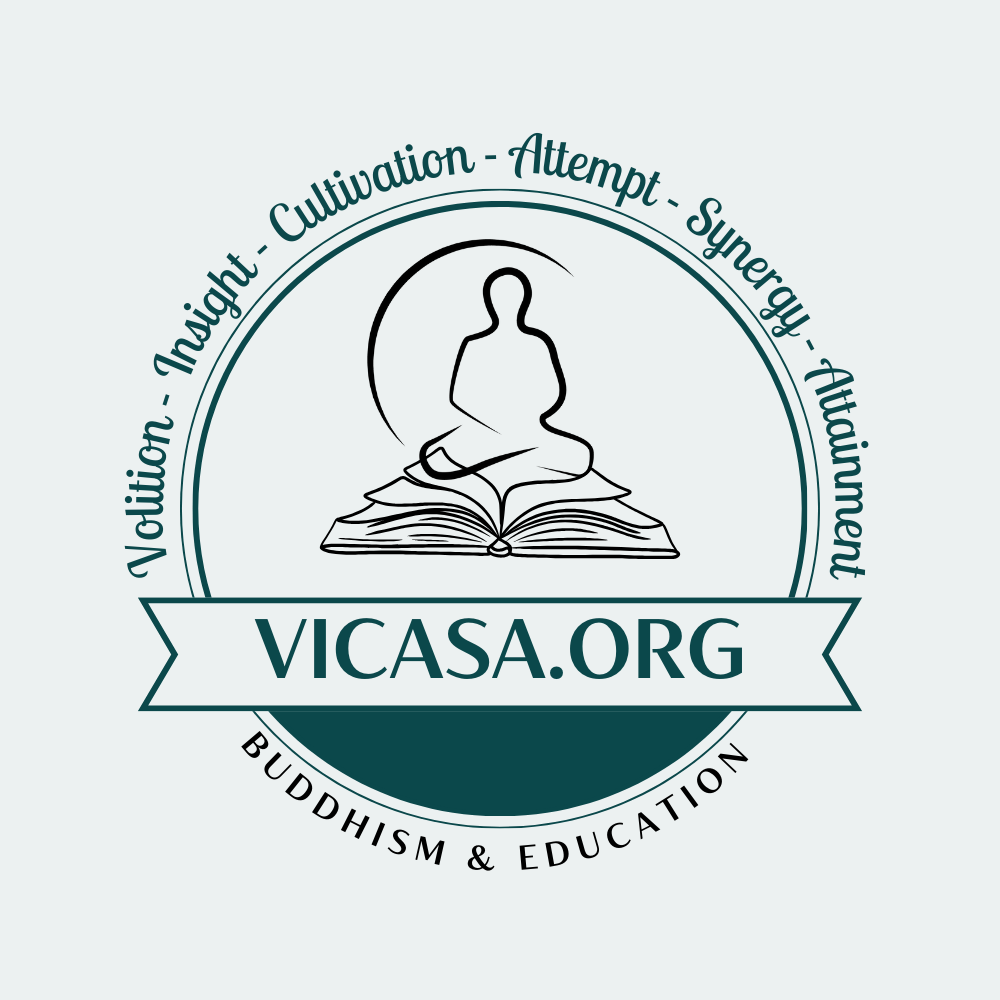
Every choice we make has its own reasons. That reason is a product of our unique knowledge and experiences at the time of making the decision. Thus, we need to constantly cultivate knowledge and confront real-world situations to accumulate experiences. In the cycle of life, we all face challenges that serve as profound personal lessons, equipping us with the experiences necessary for wise decision-making. Some of us have endured significant hardships in the past, which, fortunately, can lead to wisdom in the present as we learn from our afflictions.
While still undergoing lessons from experience, we are ignorant and must persevere in learning and practicing to gain more experience. Therefore, experiences are gained by confronting many mistakes to induce being right, so let’s not place too much emphasis on right and wrong. Rather, we just concentrate on being patient and persistent in experiencing with understanding and mindfulness to progressively mitigate mistakes. This is the way to practice the right view according to Buddhism.
We frequently ponder that our determinations are the due ones and wonder why others make such poor choices in certain situations or when we give advice. But indeed, grounded on Buddha’s teachings, everything must occur according to its causes, conditions, kammas, and results. Hence, they will have to arrive at decisions corresponding to their own ability to comprehend and experience.
Some with enough experience can immediately approve and implement the plan when they hear useful advice. However, those destitute of experience will find it struggling to believe in the advice as they probably need more practical experience. Or with the courageous, they only trust their own experience and not easily accept advice, as they tend to explore new things and take risks to learn lessons on their own and grow more stable in lieu of merely hearing from others. Thus, it is not significant whether they are good listeners or not, but only when we can perceive and realize our lessons to clearly understand what we need, we will gradually accumulate experience to further progress.
Most crucially, when you truly grasp the Buddha’s doctrine in terms of the EQUANIMITY (Upekkha) among the four immeasurable minds (love, compassion, appreciative joy, and equanimity) that each living being has their own kamma. Then, from the perspective of an experienced person, we can empathize, be indifferent (Upekkha), detach from, and not be aggressive to any choice of sentient beings. If possible, let’s quietly monitor and encourage them at appropriate times.
Likewise, many people, with wholesome intentions, desire their companions or relatives to make optimal choices to avoid consequences. But if we advise a few times and they fail to listen, let’s implicitly understand that they need more painful experiences to learn additional lessons for themselves. In accordance with cause and effect, each living being must be responsible for their own karmas, and no one can interfere. In such a case, it is our duty to DETACH (understanding that each living being has its own kamma) to desist from creating more unskillful kamma (AVERSION) by consulting them, which has no results and, more negatively, leads to damage or break the relationship.
Furthermore, when you have experienced painful suffering in order to learn the lesson and become enlightened, you will be less attached when you see others falling into the same painful situation as you. At that time, we implicitly understand that every being also needs to experience afflictions to attain awakening, which is purely consistent with the Buddha’s first Noble Truth of Suffering. Only then can we calmly let go and not be clung.
Notably, we need to apparently understand the origin of why we react unpleasantly (UNSATISFACTORINESS) when others do not listen to us. Is it because we love and attach to them (GREED), and don’t want to witness their agonies, so we give advice? However, when they don’t follow the advice, we feel unsatisfied (HATRED). Manifestly, when we fail in GREED, our mind will switch to HATRED, and assuredly, the key motive is innocence (DELUSION). Due to blindness, we do not fathom the truth that all suffering is generated by ourselves and by the kamma that controls us, not by external factors.
It’s crucial to acknowledge that until we reach enlightenment, the lives of ordinary beings are often governed by greed, hatred, and delusion. However, by developing a deep understanding of these states of mind, we can practice mindfulness to reduce their influence. This allows us to cultivate a profound understanding of ourselves and others, and to love without attachment. Love and compassion can only truly flourish when they are accompanied by understanding.
In short, each person has their own target and perspective depending on their own aspirations, leading to the KNOWLEDGE – ENCOUNTERING – EXPERIENCE of each individual being different. So let’s respect each other in the spirit of harmony, instead of separation. Consequently, as experienced and insightful ones, Simultaneously, we should also use our KNOWLEDGE – ENCOUNTERING – EXPERIENCE to ultimately target contemplation and EMPATHY with those who are in the process of learning and experiencing, as opposed to criticizing and managing, to abstain from hurting each other, as compassion and loving-kindness solely stem from insight.
- Empathy: the ability to sympathize, understand the emotions and moods of others by placing yourself in the other person’s position to feel.
- Loving-kindness: the quality of feeling love and being kind towards yourself and other people.
- Compassion: a strong feeling of sympathy for someone who is suffering, and a desire to help them.
(Dictionary)

Sayalay Vijjāñāṇī (Tue Minh)
